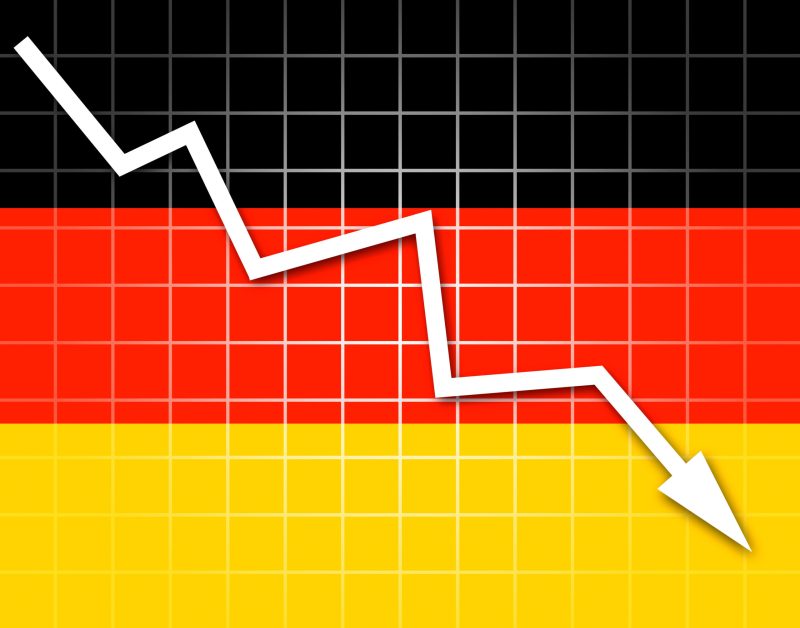German business activity contracted at its fastest pace in seven months, according to data released on Monday.
The HCOB German flash composite Purchasing Managers’ Index (PMI), compiled by S&P Global, fell to 47.2 in September, down from 48.4 in August.
This reading, below the 50-point threshold, indicates a significant contraction in Europe’s largest economy.
The economic downturn in Germany also dragged the broader eurozone economy into contraction this month, marking the first such decline in seven months.
The steep fall signals growing concerns over Germany’s economic performance, with economists now predicting a technical recession.
“A technical recession seems to be baked in,” said Dr. Cyrus de la Rubia, chief economist at Hamburg Commercial Bank, adding that he expects the German economy to shrink by 0.2% in the third quarter.
Manufacturing sector deepens downturn
Germany’s manufacturing sector remained the primary driver of the economic decline.
The manufacturing PMI dropped to 40.3 in September from 42.4 in August, marking the sector’s most severe contraction in recent months.
This continued downturn in manufacturing has dampened hopes for a swift recovery, with new orders collapsing and companies cutting jobs at a rate not seen since the COVID-19 pandemic. De La Rubia, said:
The downturn in the manufacturing sector has deepened again, evaporating any hope for an early recovery.
He noted that this sharp decline in output is spilling over into the services sector, which has seen four consecutive months of slowing growth.
Services sector and business confidence decline
While Germany’s services sector index remained in positive territory at 50.6, it showed a decline from August’s reading of 51.2, reflecting growing caution among customers.
Businesses have reported a decrease in new investments, citing concerns over the overall health of the economy.
Dr. de la Rubia highlighted the growing pessimism among manufacturers, stating:
Optimism is something of the past. Manufacturers are downright depressed about their future activity.
The recent challenges facing major players like Volkswagen have intensified concerns of deindustrialization, with many companies announcing significant job reductions.
The carmaker itself is considering shutting two German factories, in what would be its first closures ever in its home country, as it struggles with the transition away from fossil fuels.
As Germany’s flash composite PMI fell to its lowest point since February, economists are now bracing for a continued economic downturn.
A contraction of 0.2% in Q3 would confirm that Germany has entered a technical recession after GDP declined by 0.1% in the second quarter of 2024.
Downturn pulls the wider eurozone economy into a contraction
The economic downturn in Germany has dragged the broader eurozone into contraction this month, marking the first such decline in seven months.
Business activity across the eurozone fell in September, as indicated by the HCOB Flash Eurozone PMI index, which dropped to 48.9 – its lowest level in eight months.
In addition to Germany’s ongoing slump, the eurozone’s decline was exacerbated by a contraction in France’s private sector, where the boost from August’s Olympics-related activity has faded.
Business confidence also continued to weaken, with firms reporting a decline in new orders across the region.
The post Germany’s sharpest downturn in seven months drags Eurozone into contraction appeared first on Invezz


